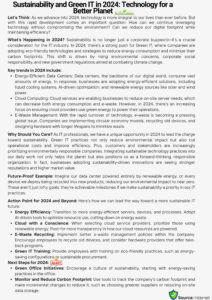
In the dynamic and ever-evolving realm of finance, Artificial Intelligence (AI) is emerging as a transformative force, reshaping traditional practices and revolutionizing the way financial institutions operate. With the advent of AI-powered technologies, financial firms are leveraging smart algorithms to analyze vast amounts of data, optimize processes, and make data-driven decisions in real-time. From algorithmic trading to risk management and customer service automation, AI is driving innovation, enhancing efficiency, and unlocking new opportunities for wealth creation. This article explores the multifaceted applications of AI in finance, delving into its impact on various sectors of the financial industry and examining the implications for investors, institutions, and the global economy.
Introduction: The Rise of AI in Finance
In recent years, AI has gained traction in the finance industry, with financial institutions increasingly adopting AI-powered technologies to gain a competitive edge in a rapidly changing landscape. AI offers unparalleled capabilities to analyze complex data sets, identify patterns, and generate actionable insights, enabling financial firms to make informed decisions with greater speed and accuracy. From automating routine tasks to predicting market trends and detecting fraudulent activities, AI is transforming every aspect of finance, revolutionizing how transactions are conducted, risks are managed, and wealth is generated.
AI-Powered Algorithmic Trading
One of the most prominent applications of AI in finance is algorithmic trading, where sophisticated AI algorithms execute trades autonomously based on predefined criteria and market conditions. AI-powered trading systems analyze vast amounts of market data, including price movements, trading volumes, and news sentiment, to identify profitable trading opportunities and execute trades at optimal prices. By leveraging machine learning techniques, these algorithms can adapt and evolve over time, continuously refining their trading strategies to maximize returns and minimize risks. Algorithmic trading has become increasingly prevalent in financial markets, accounting for a significant portion of trading volume across asset classes, including stocks, bonds, currencies, and commodities.
Algorithmic trading has transformed the way financial markets operate, enabling trades to be executed with unprecedented speed and efficiency. By leveraging AI algorithms, financial institutions can execute trades in fractions of a second, reacting to market developments and changing conditions in real-time. This has led to increased liquidity and reduced trading costs, benefiting investors and market participants. Additionally, algorithmic trading has facilitated the development of new trading strategies and investment products, such as high-frequency trading (HFT) and exchange-traded funds (ETFs), which have reshaped the structure of financial markets.
AI in Risk Management
Risk management is another area where AI is making significant inroads in the finance industry, enabling institutions to identify, assess, and mitigate risks more effectively. AI-powered risk management systems analyze diverse sources of data, including market data, credit ratings, and historical performance, to model and predict potential risks and their impact on financial portfolios. These systems use advanced statistical techniques and machine learning algorithms to quantify risks, calculate risk metrics such as value-at-risk (VaR) and stress tests, and optimize risk-adjusted returns. By providing real-time insights into portfolio risk exposures and vulnerabilities, AI enables financial institutions to make more informed decisions and proactively manage risks to protect investor assets and maintain financial stability.
The integration of AI into risk management processes has revolutionized how financial institutions assess and manage risks across various asset classes and investment strategies. AI-powered risk management systems can analyze vast amounts of data with unparalleled speed and accuracy, enabling institutions to identify emerging risks and opportunities in real-time. Moreover, these systems can provide scenario analysis and stress testing capabilities, allowing institutions to assess the potential impact of adverse market conditions and macroeconomic shocks on their portfolios. By incorporating AI into risk management frameworks, financial institutions can enhance their ability to anticipate, mitigate, and respond to risks, ensuring the stability and resilience of the financial system.
AI in Fraud Detection and Security
Fraud detection and security are critical concerns for financial institutions, given the increasing sophistication of cyber threats and fraudulent activities in the digital age. AI-powered fraud detection systems leverage advanced analytics and machine learning algorithms to detect anomalous patterns and suspicious behaviors indicative of fraudulent activities. These systems analyze transactional data, user behavior, and network activity in real-time to identify potential threats and take proactive measures to prevent fraud and unauthorized access. By continuously monitoring for suspicious activities and adapting to emerging threats, AI enables financial institutions to safeguard customer assets, protect sensitive data, and uphold trust and confidence in the financial system.
The integration of AI into fraud detection and security operations has significantly enhanced the ability of financial institutions to detect and prevent fraudulent activities. AI-powered fraud detection systems can analyze large volumes of transactional data with high accuracy, enabling institutions to identify and investigate suspicious transactions in real-time. Moreover, these systems can detect sophisticated fraud schemes that may evade traditional rule-based detection methods, such as account takeover fraud and synthetic identity theft. By leveraging AI algorithms, financial institutions can strengthen their defenses against fraud and cyber threats, reducing financial losses and preserving the integrity of the financial system.
AI-Powered Customer Service and Personalization
AI is also revolutionizing customer service and personalization in the finance industry, enabling institutions to deliver more personalized and responsive services to their clients. AI-powered chatbots and virtual assistants provide round-the-clock support to customers, answering inquiries, resolving issues, and providing personalized recommendations based on individual preferences and financial goals. These virtual assistants leverage natural language processing (NLP) and machine learning algorithms to understand customer queries, anticipate their needs, and deliver tailored responses in real-time. By automating routine customer interactions and providing personalized assistance, AI enhances the overall customer experience, improves satisfaction, and strengthens customer loyalty.
The integration of AI into customer service operations has transformed how financial institutions interact with their clients, enabling them to deliver more efficient and personalized services. AI-powered chatbots and virtual assistants can handle a wide range of customer inquiries and requests, from account inquiries and transactional support to financial advice and product recommendations. By automating routine tasks and providing timely assistance, AI-powered customer service solutions enable financial institutions to deliver a seamless and responsive customer experience across multiple channels, including websites, mobile apps, and messaging platforms. Moreover, AI enables institutions to gain valuable insights into customer preferences and behavior, allowing them to personalize their services and offerings to meet the unique needs of each client.
Ethical and Regulatory Considerations
While the potential benefits of AI in finance are vast, there are also ethical and regulatory considerations that must be addressed to ensure responsible and ethical use of AI-powered technologies. Concerns have been raised about the fairness, transparency, and accountability of AI algorithms, particularly in areas such as algorithmic trading and credit scoring. Moreover, there are privacy and security implications associated with the collection and use of sensitive financial data for AI-driven decision-making. Regulatory frameworks and guidelines must be established to govern the ethical use of AI in finance, protect consumer rights, and mitigate potential risks associated with AI-powered technologies.
The ethical and regulatory considerations surrounding the use of AI in finance are complex and multifaceted, requiring careful consideration and collaboration among stakeholders, including regulators, financial institutions, and technology providers. Regulatory frameworks must be updated to address the unique challenges posed by AI-powered technologies, including issues related to data privacy, algorithmic bias, and consumer protection. Moreover, industry standards and best practices must be established to ensure the responsible and ethical use of AI in finance, including transparency and accountability mechanisms to enhance the fairness and integrity of AI-driven decision-making processes.
Future Directions and Conclusion
Looking ahead, the future of AI in finance holds immense promise, with continued advancements in AI-driven technologies expected to further transform the industry. Future developments
may include the integration of AI with emerging technologies such as blockchain and quantum computing to enhance security, transparency, and efficiency in financial transactions. Moreover, AI is poised to play a pivotal role in addressing complex challenges such as climate change, economic inequality, and financial inclusion, by enabling data-driven solutions and innovative financial products and services. As the finance industry continues to embrace AI-powered technologies, the potential for wealth creation, financial empowerment, and economic growth remains unparalleled, ushering in a new era of finance powered by smart algorithms and intelligent systems.






